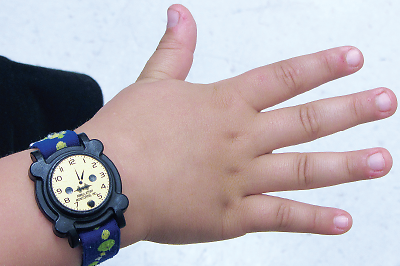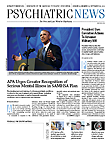Sleep-focused treatment improves mood and quality of life in children with attention-deficit/hyperactivity disorder (ADHD), asthma, chronic pain, and cancer, according to speakers at symposium on sleep in children with chronic health conditions at the annual meeting of the American Academy of Sleep Medicine and Sleep Research Society in Minneapolis in June.
Children with ADHD are two to three times more likely to have trouble sleeping than children without the disorder, said Penny Corkum, Ph.D., a professor of psychology and neuroscience at Dalhousie University in Halifax, Nova Scotia. Their sleep problems may undermine daytime performance, said Corkum, who directs research and training at Colchester Regional Hospital’s ADHD Clinic.
In research reported at the meeting, she and colleagues assessed sleep in 30 children newly diagnosed with ADHD and 30 age- and sex-matched typically developing controls. The children’s mean age was about 8.5. At baseline, children with ADHD took 47 minutes to fall asleep in the sleep laboratory, while controls took 24 minutes. Children with ADHD slept about 30 minutes less than controls.
In a four-week medication trial, the researchers gave the 30 children with ADHD either a standard single daily morning dose of methylphenidate or a placebo, in random order for two weeks. While children took longer to fall asleep and slept less when taking the stimulant than when taking the placebo, parents and teachers said their behavior improved.
Children being evaluated for problems with attention, Corkum said, should also be screened for sleep disorders. Consequences of sleep disorders such as obstructive sleep apnea, insomnia, and periodic limb movement disorder/restless leg syndrome may mimic symptoms of ADHD.
Children with and without ADHD, she added, benefit from having a consistent bedtime, learning to fall asleep on their own, sleeping in a dark room, and avoiding television, computers, telephones, and other electronic devices near bedtime.
Children and adolescents with persistent pain commonly report difficulty falling or staying asleep or complain of poor quality sleep, said symposium speaker Tonya Palermo, Ph.D., a professor of anesthesiology and pain medicine at the University of Washington, Seattle.
About 5 percent to 8 percent of children and adolescents in community samples experience moderate to severe disability from persistent pain, most often in the head, abdomen, or limbs, she noted. Common causes include headache disorders, juvenile arthritis, and sickle-cell disease.
Some have depression. Their pain medications may be sedating. These youngsters often say, “I’m always tired,” Palermo noted. Many take frequent and often long naps that may interfere with school or social activities. Concerned parents may allow children to stay in bed late in the morning.
Engaging children and adolescents in self-assessment, Palermo said, may foster improved sleep habits. She asks them to abstain from watching television in their bedroom for a week, for example, to see how that affects their sleep. She also encourages them to use an alarm clock and get up on their own and to maintain a consistent weekday/weekend schedule.
Palermo and colleagues also found that poor sleep diminishes the effectiveness of cognitive-behavioral therapy for chronic pain. She said sleep-specific intervention may need to be delivered before pain-focused behavioral therapy starts.
Extending Sleep Improves Asthma
In children and adolescents with asthma, in contrast to those with pain, getting the illness under control first often benefits sleep, noted Lisa Meltzer, Ph.D., an associate professor of pediatrics at National Jewish Health in Denver.
Asthma-related illness accounts for more than 14 million missed school days in the United States annually.
But even when asthma is well-controlled, sleep often is disturbed. Meltzer and colleagues surveyed 298 adolescents, nearly half of whom had asthma. Forty-four percent of the 43 adolescents with severe asthma reported insufficient weekday sleep. They had more clinically significant insomnia and daytime sleepiness than those with mild or no asthma. They also had more negative bedtime cognitions that interfered with sleep onset than the others.
Meltzer’s group instructed 26 adolescents with asthma on good sleep practices and helped them choose an optimal bedtime and wake time to follow for a week. The teenagers wore activity monitors on their wrists, kept sleep diaries, and called daily to report sleep times and peak flow measurements.
They slept longer than usual in the study week, reported fewer asthma symptoms, and used less of the asthma medication, albuterol. Their parents reported they displayed better executive functioning, including working memory and planning/organizing skills. The study is in press with the Journal of Allergy and Clinical Immunology: In Practice.
Meltzer urged clinicians to ask adolescents with asthma about sleep duration, sleep hygiene, and insomnia and offer interventions such as cognitive-behavioral therapy for insomnia when needed.
Fatigue Linked With Depression in Cancer
Children with cancer find fatigue among their most common and distressing symptoms, said Valerie Crabtree, Ph.D., director of clinical services and training in the Department of Psychology at St. Jude Children’s Research Hospital in Memphis.
Fatigue may have physical, emotional, or cognitive effects and is related to depressive symptoms, she said. Effects of chemotherapy and radiation, adjunctive medications, anemia, and stressors in the treatment environment, such as noise and sleep interruptions, contribute to the children’s fatigue.
Some children also experience excessive daytime sleepiness, which is associated with an increase in propensity for sleep that distinguishes it from fatigue.
In children with brain tumors that are near the hypothalamic-pituitary-adrenal axis or that affect light perception, the sleep-wake cycle may be disrupted, Crabtree said, leading to daytime sleepiness.
Prior to proton therapy, half of a group of 38 children with craniopharyngioma experienced difficulty maintaining alertness, Crabtree and colleagues found. The researchers are conducting a longitudinal study of sleep in children with that disorder to guide alertness-management interventions in this population. ■

